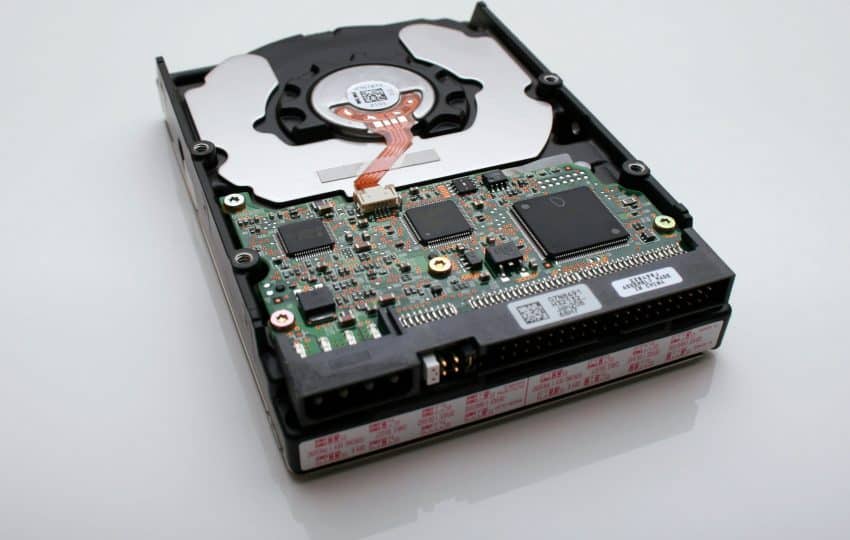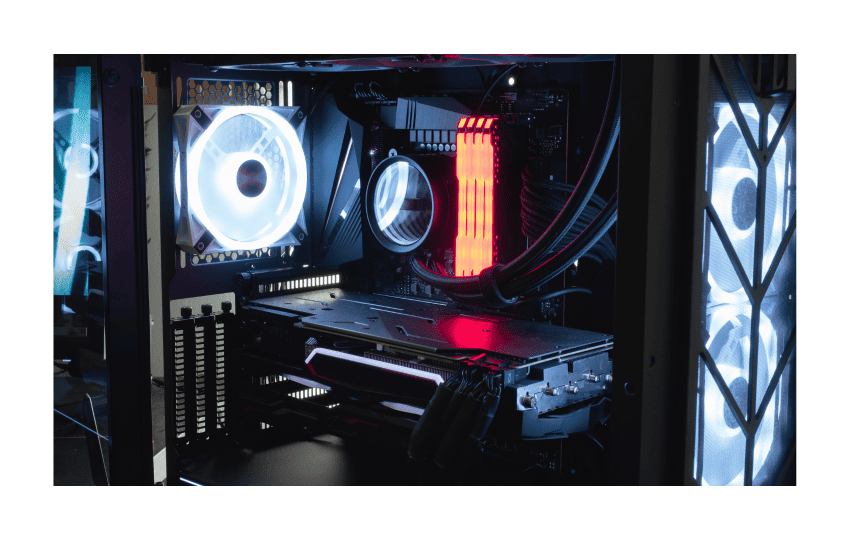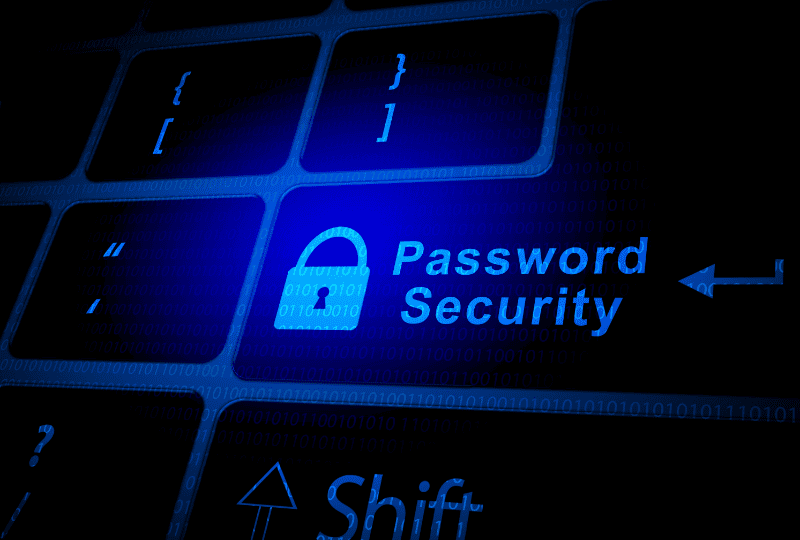Don’t Toss That Hard Drive Just Yet: Why Proper Disposal Matters

It’s easy to see old electronics as nothing more than clutter. But when it comes to hard drives, tossing them in the trash could be a big mistake. Whether you’re upgrading to a newer model or clearing out your workspace, your old hard drives still hold value—and risks—that you might not realize.
From safeguarding your personal data against identity theft to contributing to environmental conservation, there are many important reasons to think twice before discarding those old drives. In this blog, we’ll explore why it’s crucial to handle old hard drives with care, the potential risks of improper disposal, and the surprising ways you can repurpose or recycle them. Before you decide to simply throw them away, let’s take a closer look at why your old hard drives deserve a second thought.
Data Security Risks: Why Disposing of Hard Drives Requires Caution
When it comes to getting rid of an old hard drive, there’s one crucial factor you can’t afford to overlook: data security. It’s easy to think that once you’ve deleted your files or the drive stops working, your information is gone for good. Unfortunately, that’s not the case. Disposing of hard drives without properly wiping them can lead to serious data breaches.
Even after you’ve “deleted” files, remnants of your data often remain on the drive, hidden but still recoverable. This includes everything from personal documents to passwords, financial records, and even those private photos you thought were long gone. If your hard drive falls into the wrong hands, skilled individuals—or even just someone with the right software—can recover this information and potentially misuse it.
Imagine the fallout if someone managed to retrieve your bank account details, Social Security number, or sensitive work documents. The consequences could range from identity theft to financial fraud, both of which are incredibly stressful and time-consuming to resolve.
To protect yourself, it’s essential to ensure that your hard drive is thoroughly wiped before disposal. This means using specialized software to overwrite the existing data multiple times, making it nearly impossible for anyone to recover. In some cases, physical destruction of the drive might be necessary for an added layer of security.
By taking these precautions, you’re not just protecting yourself but also preventing the possibility of your data being used for malicious purposes. Data security is a serious matter, and proper disposal of your old hard drives is a critical step in safeguarding your personal information.
But before you give up on that old drive entirely, consider the possibility of data recovery.
Data Recovery: Don’t Give Up on Your Old Hard Drives Just Yet
So, your old hard drive is on the fritz, refusing to boot up or making those ominous clicking noises that signal it’s reached the end of its life. It might be tempting to write it off as a lost cause, but before you do, consider this: even damaged hard drives often contain recoverable data. Yes, that’s right—your important files might still be saved, even when your drive seems completely non-functional.
Data recovery specialists have the tools and expertise to extract files from hard drives that appear to be beyond repair. Whether it’s due to physical damage, corruption, or simply old age, these professionals can often retrieve those irreplaceable documents, photos, or work files that you thought were gone forever.
The process of data recovery can involve repairing the drive just enough to access the data or using advanced techniques to recover files directly from the disk platters. This can be a lifesaver if your hard drive holds critical information that you didn’t get a chance to back up.
The bottom line? Don’t give up on that old drive without considering data recovery. It’s a worthwhile option that could save you a lot of stress and heartache, not to mention the loss of valuable information. So, before you toss that drive in the trash, think about the data it might still be holding onto—and whether it’s worth making the effort to retrieve it.
But what if your hard drive is beyond saving or you’re simply ready to move on? There are still plenty of ways to make the most out of your old drives. Instead of letting them gather dust, consider their potential for reuse and recycling. Not only can they serve new purposes, but recycling them also helps protect the environment. Let’s explore how you can give your old hard drives a second life and make a positive impact.
Reuse and Recycling: Give Your Old Hard Drives a Second Life
When your old hard drive is no longer suitable for your primary computing needs, don’t be too quick to toss it aside. Even if it’s no longer the fastest or largest drive you own, there’s still plenty of life left in that piece of tech. In fact, old hard drives offer a surprising amount of reuse potential, whether through repurposing, DIY projects, or giving back through donation.
One of the easiest ways to breathe new life into an old hard drive is by converting it into an external storage device. With a simple enclosure, your old drive can become a portable storage solution, perfect for backing up important files, transporting data, or expanding your current storage capacity. It’s a budget-friendly way to make the most out of what you already have.
If you’re the creative type, old hard drives can be a fun component in various DIY projects. Whether you’re building a custom NAS (Network Attached Storage), experimenting with a home server, or even using the drive’s internal parts for art or educational projects, there are countless ways to repurpose an old hard drive that extend beyond traditional computing.
Donating your old drives is another great option, especially if they’re still functional. Schools, nonprofits, and community centers often need extra storage capacity but may not have the budget for new hardware. By donating your old drives, you’re not only clearing out clutter but also helping others get access to the technology they need.
And if your drive is truly at the end of its life, don’t forget about recycling. Many electronic waste recycling programs are designed to handle hard drives and other e-waste responsibly. These programs ensure that your old drive is properly dismantled, with valuable materials like metals and plastics recovered and reused, reducing the demand for new raw materials. Plus, they handle the hazardous components, like lead and mercury, in an environmentally friendly way, keeping these harmful substances out of landfills.
In the end, whether you choose to reuse, repurpose, or recycle, you’re doing your part to reduce waste and make the most of the resources at hand. So, before you discard that old hard drive, consider the many ways it can still be of use—to you, to others, or to the planet.
Backup Storage: How Old Hard Drives Can Be Your Data’s Safety Net
In a world where our lives are increasingly digital, having reliable backups of important data is more crucial than ever. While we often rely on cloud storage or the latest external drives, your old hard drives can play a key role in safeguarding your data. They might not be as fast or flashy as newer models, but they can still be a valuable asset in your data protection strategy.
Think of old hard drives as your data’s safety net. Even if they’re no longer suitable for everyday use, they’re still perfectly capable of storing backups of your important files. By keeping a backup on an older drive, you add an extra layer of protection against data loss from more current storage devices. If something goes wrong with your primary storage—a crash, corruption, or accidental deletion—having that backup on a separate, older drive could save the day.
Setting up a backup on an old drive is simple. Most operating systems come with built-in backup tools that allow you to schedule regular backups to any connected storage device. Once set up, you can let it run in the background, quietly ensuring that your important files are safely duplicated. Plus, by using an older drive for backups, you’re putting it to good use instead of letting it gather dust in a drawer.
Old hard drives can also be handy for creating off-site backups. Store your old drive with important data at a different location—like a friend’s house or a safety deposit box. This way, even in the event of a disaster at home, your data is still secure and accessible.
While new technology often takes center stage, there’s something to be said for making the most of what you already have. By using old hard drives as backup storage, you’re not just recycling—you’re giving your data an extra layer of protection. So, before you decide that your old hard drive is obsolete, consider its potential as a backup solution. It might just be the security blanket your data needs.
Avoid Identity Theft: Protect Yourself by Properly Disposing of Old Hard Drives
When it’s time to get rid of an old hard drive, one of the biggest dangers you might not immediately consider is the risk of identity theft. It’s easy to assume that once you’ve deleted your files or the drive is no longer functioning, your personal information is safely out of reach. But in reality, improper disposal of hard drives can leave your data vulnerable to retrieval—and potentially lead to identity theft.
Hard drives store a wealth of personal information: everything from your banking details and passwords to personal documents and emails. Even if you’ve deleted files or the drive has been sitting idle for years, that data is often still recoverable with the right tools. Malicious actors who know how to retrieve this data can use it to steal your identity, commit fraud, or engage in other illegal activities that could cause you serious harm.
Imagine someone gaining access to your old financial records, tax returns, or even personal photos—this information in the wrong hands can lead to unauthorized bank transactions, fraudulent credit card charges, or even applying for loans in your name. The consequences of identity theft can be devastating and long-lasting, requiring significant time and effort to resolve.
To protect yourself, it’s essential to properly dispose of old hard drives. This doesn’t just mean deleting files—simply moving them to the trash bin isn’t enough. You need to ensure that your data is thoroughly wiped, making it unrecoverable. There are several methods to do this, including using specialized data-wiping software that overwrites the entire drive multiple times, ensuring that even the most determined thief won’t be able to recover your information.
For those who want an extra layer of security, physically destroying the hard drive is an option. Drilling holes through the disk or smashing it with a hammer might seem extreme, but it’s an effective way to ensure that your data is gone for good.
In the end, the effort you put into properly disposing of your old hard drives is a small price to pay for the peace of mind that comes with knowing your personal information is safe. By taking these precautions, you’re significantly reducing the risk of identity theft and protecting yourself from the nightmare of dealing with the fallout of stolen data. So, before you discard that old drive, make sure your personal information is truly out of reach.
As you navigate your technology, it’s easy to overlook the importance of properly handling your old hard drives. But as we’ve explored, these devices hold more than just outdated files—they contain personal data that could put you at risk if not properly managed. Whether it’s protecting yourself from identity theft, minimizing environmental impact, or finding creative ways to repurpose and recycle, the way you dispose of your hard drives matters.
By taking a few extra steps to securely erase or repurpose your old drives, you’re not just clearing out clutter—you’re safeguarding your privacy, contributing to sustainability, and even unlocking new possibilities for their use. So, before you toss that old hard drive in the trash, remember the risks and the opportunities. A little caution today can prevent big problems tomorrow, and your efforts can make a meaningful difference in protecting both your data and the environment.



